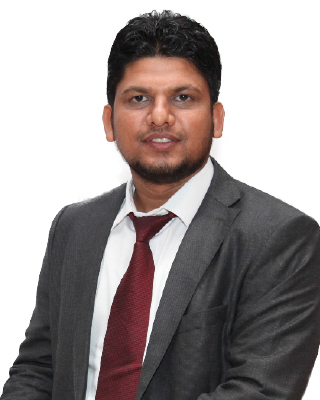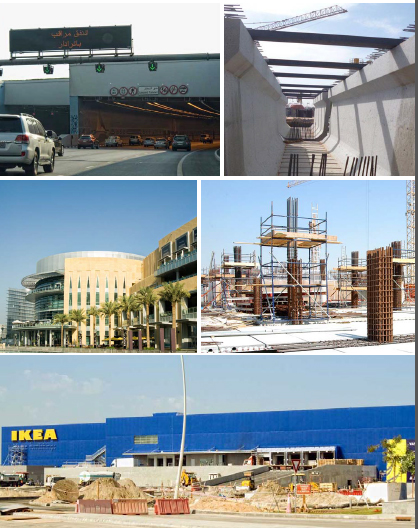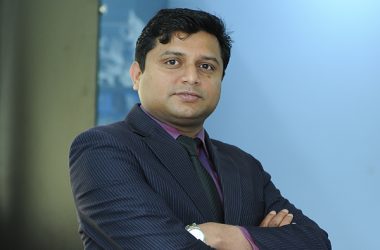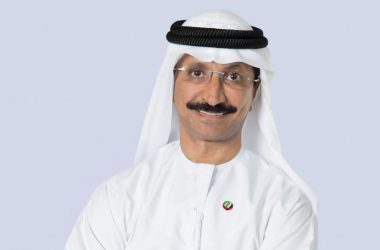
With a lack of sufficient processes to ensure timely delivery of its product, Gulf Precast was suffering. Mohammad Shahzad, ICT Manager, Gulf Precast Concrete, implemented an enterprise-wide ERP solution which has vastly improved operating processes and had a huge impact on the company’s bottom line.
Gulf Precast is a household name – the precast concrete company creates the building blocks and elements that make up many of the villas and households in the GCC. The firm is one of the oldest companies in the UAE. Building on more than 30 years of experience, Gulf Precast has expanded beyond its original boarders of the UAE, and out into the larger GCC with operations now active in Saudi Arabia. With six fixed manufacturing factories – four in Abu Dhabi and two in Dubai – the company can produce up to 1,240 m3 per day, the largest precast capability in the UAE.
The company is also behind a great deal of the physical infrastructure of the region. Precast concrete is a construction product made by casting concrete in a reusable mould or ‘form’ which is then cured in a controlled environment, transported to the construction site and lifted into place.
The process of creating these pieces, as well as storing and shipping them, is all about tracking and timeliness, says Mohammad Shahzad, Information and Communication Technology Manager, Gulf Precast Concrete. “If the precast material arrives too early, then it takes up room on the construction site, and can potentially cause problems,” he says. “If it arrives too late, then crews are waiting on site and costing the business time and money.” All pieces need to arrive on time and in excellent condition.
Achieving the twin goals of quality and timeliness was a difficult task just a few years ago. “Before 2010, our IT systems were quite siloed,” explains Shahzad. “Finance was using one IT system, and manufacturing was using another. Each department had its own way of doing things, and their IT systems were simply speaking different languages.” In addition, the company had no proper data system, and much of their tracking process was still paper-based. Also, while the company was creating a wealth of data, it was not being analysed or utilised.
Gulf Precast turned to Ramco Systems to deliver enterprise-wide ERP solutions throughout the Precast Gulf environment. The team at Gulf Precast, along with Ramco and systems integration partner Primavera, created a phased roll-out plan, and Shahzad joined Gulf Precast shortly thereafter. “To describe everything that was changed would take hours,” quips Shahzad. “It has really been a comprehensive adjustment to all of our systems.”
Shahzad saw the solution not as a patchwork of systems, but as one, comprehensive overhaul. “We wanted everything to work on the same system so that we could all be on the same page.” With more than 25 modules, and nearly 300 end-users, the brief was anything but small.
The management of Gulf Precast was a critical support, says Shahzad. With the top brass behind the project, it was only a matter of implementing the new systems, and bringing all of the end-users on board. “Ramco provided regular training sessions for users of the new portals,” says Shahzad. However, in truth, he says, the software was user-friendly enough that training was not a major issue.
“The goal was a completely integrated end-to-end system,” Shahzad says. This would allow Gulf Precast to track its products. “For example, we have put QR codes on all of our products and vehicles,” Shahzad highlights one of many IT projects, “With that QR code, we can scan the precast product and know its corresponding storage area, who checked it for quality and when it is scheduled to be delivered to its project site.”
 What makes this overhaul truly unique, is that the entire infrastructure is on one system. “The same system that governs the product tracking, governs our HR department, our finance department and more,” says Shahzad. The resulting infrastructure means all departments are now speaking the same language.
What makes this overhaul truly unique, is that the entire infrastructure is on one system. “The same system that governs the product tracking, governs our HR department, our finance department and more,” says Shahzad. The resulting infrastructure means all departments are now speaking the same language.
Further, they are able to manage most processes via their smartphones. “For example,” says Shahzad, “our vehicles can be scanned with a smartphone to reveal important transport information.” Gulf Precast wanted to make information accessible to the employees that need it, at the exact time that they need it.
The revamping of the overall system has resolved hundreds of issues, says Shahzad, as well as providing a significant return on investment. “By using smartphones for field operations, rather than other handheld devices, we have saved $375,000.” In addition, the Gulf Precast financial period closing time has been reduced from one month to six days, and project cost collation has reduced from 15 to just two days. This allows the company to avoid billing discrepancies and bill their customers in a timely manner.
Internally, the overall financial period close time has gone from 25 days to seven, and payroll processing time has been cut from 25 days to only two. With funds flowing in and out in a timely manner, and fewer discrepancies in billing and payroll, both employees and customers are more satisfied.
With the new systems nearly complete, Shahzad is looking to the future. “Our IT security is sound and our ERP system is functioning with almost no downtime,” he says. “Now we are looking into analysing the data that these new systems create.” As the data created only flows through all the data flows through one system, there is almost no possibility that it can be tampered with due to human error between its creation and its arrival at the Gulf Precast headquarters. This may be an enormous opportunity for the company to improve its processes further in the future.
It was, indeed, a daunting project that Shahzad undertook, but he is adamant that the credit not go to him alone. “I have to share this ERP deployment accomplishment with my team. Their contributions were invaluable, and continuous support from our top management is truly what made this possible.”





